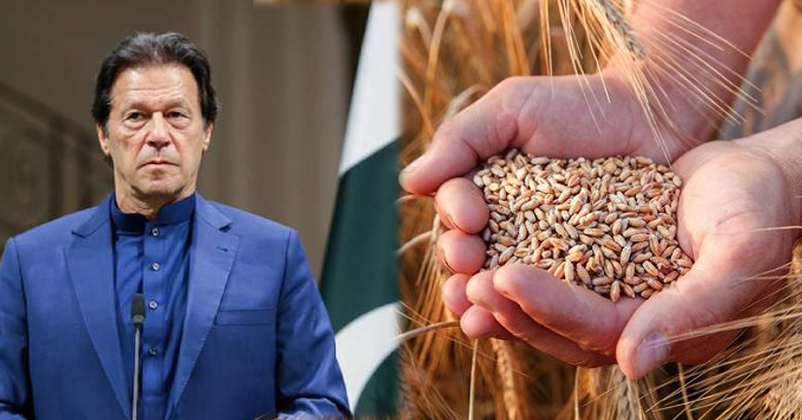Pakistan may allow Indian wheat for Afghanistan
14 Nov 2021 12:23:08

By Sant Kumar Sharma
Jammu, November 14:
India had made an offer to give 50,000 tons of wheat as humanitarian aid to Afghanistan a couple of weeks ago. This wheat was to be transported via land route through Pakistan to Kabul, Kandhar and other cities via Attari-Wagah border near Amritsar. However, Pakistan did not want any type of Indian involvement in Kabul’s affairs and stalled this export, not responding to the Indian offer. Now, Pakistan Prime Minister Imran Khan has said that his country will consider allowing this in the near future. He said this change in Pakistan’s stance is guided by ``request from our Afghan brothers’’.
The ``request from our Afghan brothers’’ is a reference to the discussions Pakistani officials had with an Afghan delegation now in Islamabad. The 20-member Afghan delegation is led by interim Afghan foreign minister Amir Khan Muttaqi and had held discussions with Russian, Chinese and US officials also. At the same time, beginning November 11, India had also organised a meeting of National Security Advisors (NSAs) of eight countries to discuss the emerging Afghanistan situation.
The meeting of NSAs at New Delhi was hosted by Indian NSA Ajit Doval and invitations had also been extended to NSAs of Pakistan and China. Adopting a rather proud posture, Pakistan NSA Moeed Yusuf had said that a ``spoiler’’ could have no role in Afghanistan while turning down the Indian invitation. After this, China had also decided not to attend New Delhi deliberations on Afghanistan due to ``scheduling issues’’. India being branded as a ``spoiler’’ in Afghanistan by Pakistan is apparently something the Taliban rulers do not agree with.
Taliban spokesman Sohail Shaheen had welcomed the deliberations in New Delhi on Afghanistan’s future saying that these would prove to be helpful to his country. Shaheen’s comments that the New Delhi deliberations were welcome as they could help achieve ``peace and stability in Afghanistan’’ were in sharp contrast to Pakistan NSA’s ``spoiler’’ comment. In international diplomacy, this shows that the Taliban 2.0 are keen not to be seen as an appendage of Inter Services Intelligence (ISI) of Pakistan. This subtle signalling also means that they want to convey to other countries that they can decide a line of action independent of Pakistani establishment.
Incidentally, transporting 50,000 tons of wheat to Afghanistan from India can only be the first of such steps, if Pakistan does not adopt a dog in the manger policy. India has a huge surplus of grains in Food Corporation of India (FCI) godowns and more can be easily allocated to Afghanistan. Besides wheat, rice and medicines can also be sent to Kabul and beyond. This can prove critical for millions of Afghans as a grave humanitarian crisis is building up swiftly in Afghanistan with each passing day. As temperatures plummet, and touch below the freezing point, distribution of grains in rural areas will become much more difficult.
Painting a grim picture of the days ahead for Afghanistan, some agencies have said that as many as one million children and women can die due to hunger, lack of medical aid and related factors. A large majority of 38 million (3.8 crore) Afghan citizens are in dire need of humanitarian support and India can help them. If only Pakistan acts as a facilitator, and not as an impediment, to Indian efforts in reaching out to Afghanistan.